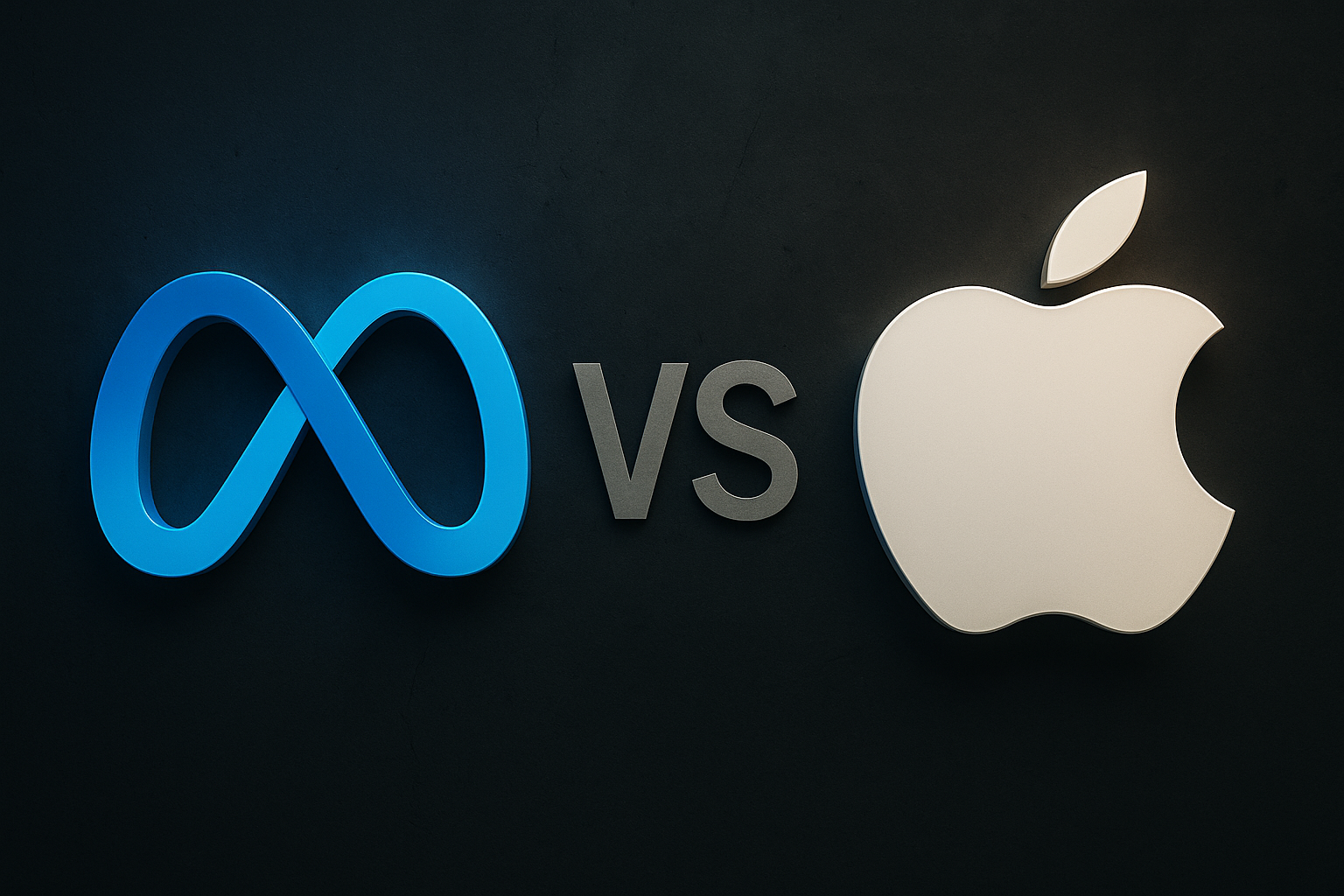Its easy to look at the smartphone in your hand and think of it as the pinnacle of personal technology. It connects us, organizes our lives, and entertains us. For over a decade, it has been the undisputed center of our digital universe. But in the grand, cyclical history of tech, every dominant platform eventually gives way to the next. The mainframe gave way to the PC, the PC to the internet, and the web to the smartphone. The question that keeps CEOs in Silicon Valley up at night is, “What’s next?” And Mark Zuckerberg seems to have just fired the starting pistol on the race to define that future, aiming squarely at the current king of the hill: the iPhone.
The Scars of the Last Platform War
To understand Meta’s strategy, you have to look back at Facebook’s history. For its entire existence, it has been a massively powerful and profitable tenant living on someone else’s land. First, it was the open web, but its true explosion came with mobile. It built a world-class app, but that app lived inside two kingdoms it couldn’t control: Apple’s iOS and Google’s Android. This became a critical vulnerability. When Apple decided to introduce App Tracking Transparency (ATT), it kneecapped a core part of Meta’s advertising model with a simple software update. Zuckerberg learned a hard lesson: you can be one of the most popular destinations in the world, but it means little if someone else owns the roads that lead there. This new “war” isn’t just about selling VR headsets; it’s a declaration that Meta will no longer be a tenant. It intends to own the entire city.
A Tale of Two Utopias
The conflict between Meta and Apple is a fascinating clash of philosophies, presenting two very different visions for our digital future. Apple, with its forthcoming Vision Pro, is selling “spatial computing.” It’s a vision deeply integrated with the real world, a seamless, high-fidelity overlay of digital information onto our physical spaces. It’s polished, premium, and, in classic Apple fashion, a meticulously controlled “walled garden.” Meta, on the other hand, is pushing the “metaverse” with its more accessible Quest hardware. Its vision is less about augmenting our current reality and more about creating new, immersive virtual ones for gaming, socializing, and working. Zuckerberg is positioning Meta as the “open” alternative, drawing a direct parallel to the Android vs. iOS battle. He’s betting that a more affordable, open ecosystem will ultimately win out, even if it’s less polished than Apple’s hyper-curated experience.
What This Means for the Rest of Us
This isn’t just a corporate grudge match; the outcome has profound implications for everyone. For developers, it’s a choice between building for a potentially massive, open platform where they might have more freedom and better economics, or for Apple’s curated, high-value ecosystem. For us as users, it’s a choice about how we want to interact with technology. Do we want a digital layer over our existing world, or do we want to step into entirely new ones? The financial stakes are astronomical, concerning not just hardware sales but the control of future app stores, digital economies, and the very definition of social connection. This is a battle for the next dominant computing platform, and the winner will shape our digital lives for decades to come.
We’re standing at a fascinating crossroads. The smartphone era, for all its power, may be entering its twilight. The moves being made by Meta and Apple aren’t just about new gadgets; they are foundational bids to build the world we’ll inhabit next. It forces us to ask some big questions: Do we prefer an open, slightly chaotic digital frontier or a polished, controlled digital garden? Is the future of connection about enhancing our physical presence or creating a new virtual one? I’m curious to know what you thinkwhich vision of the future are you betting on?

